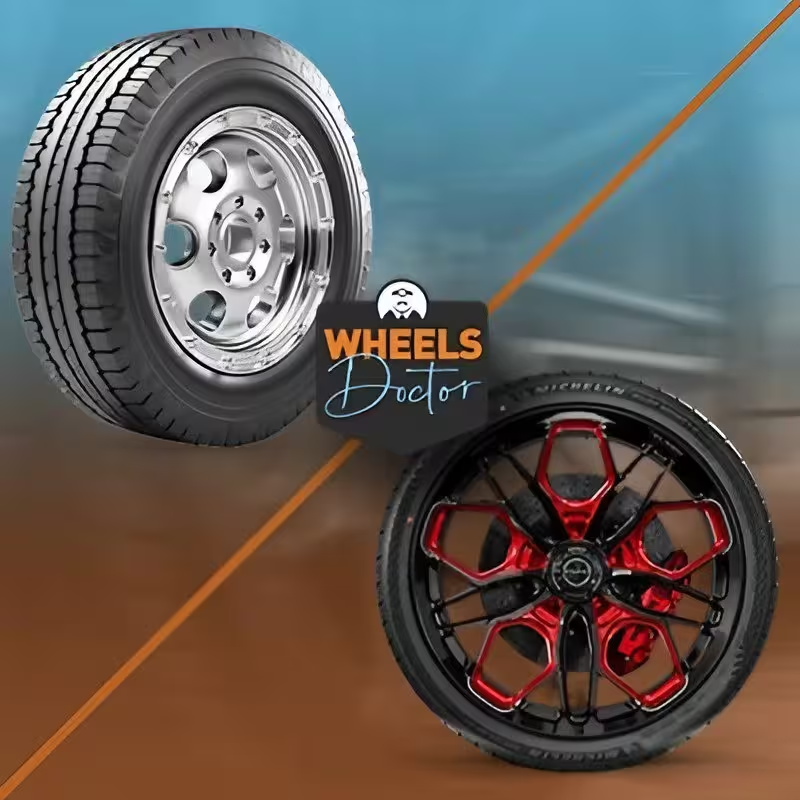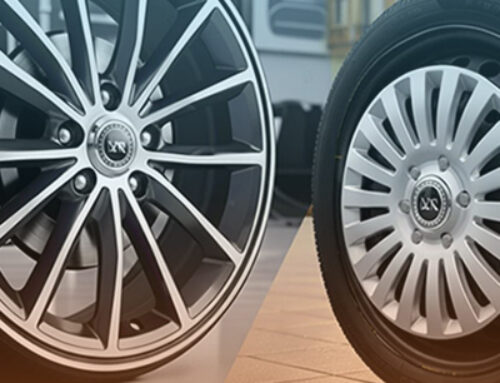What is the Difference Between Car and Truck Wheels?
When it comes to vehicles, one crucial component that is often overlooked is wheels. While they may appear similar at first glance, car and truck wheels are made for different purposes. Understanding these distinctions is key to optimizing performance, safety, and handling. In this article, we will explore the key differences between these two types of vehicles, focusing on their unique design, construction, and functionality.
1. Size and Diameter
One of the most noticeable differences between car and truck wheels is their size.
- Car Wheels: Typically, car wheels range from 14 to 20 inches in diameter. They are designed for smooth handling and better fuel efficiency on paved roads. The smaller size helps with agility and maneuverability, making them ideal for city driving and commuting.
- Truck Wheels: Generally range from 16 to 24 inches or even larger, depending on the truck’s purpose. The larger diameter allows for better ground clearance and improved load-bearing capacity, essential for hauling heavy loads and navigating rough terrain.
2. Width and Width Variation
Width plays a critical role in determining the performance characteristics of a vehicle.
- Car Wheels: Car wheels are usually narrower than truck wheels. This design reduces weight and improves fuel efficiency, making cars more agile and responsive on the road.
- Truck Wheels: Are typically wider, allowing for a larger contact patch with the road. This increased width enhances stability and traction, especially when carrying heavy loads or driving off-road.
3. Material and Construction
The materials used in the construction of wheels can also differ significantly.
- Car Wheels: Most car wheels are made from aluminum or alloys, providing a lightweight yet sturdy option. This construction improves fuel efficiency and enhances the car’s overall performance.
- Truck Wheels: Are often constructed from heavier materials like steel or high-strength aluminum. These materials are designed to withstand the additional stress of heavy loads and off-road conditions, ensuring durability and reliability in various driving environments.
4. Load Rating and Strength
The load rating is another critical difference between car and truck wheels.
- Car Wheels: Car wheels are engineered for lighter loads, usually accommodating the weight of the vehicle and its passengers. They have lower load ratings compared to truck wheels, which means they may not be suitable for heavy-duty use.
- Truck Wheels: Are built with higher load ratings to handle the additional weight of cargo, tools, or equipment. This higher strength ensures that the wheels can endure more significant stress without compromising safety or performance.
5. Tire Compatibility
The type of tires used with car and truck wheels can vary significantly.
- Car Wheels: Car wheels are compatible with tires designed for optimal performance on paved surfaces, focusing on comfort, fuel efficiency, and low road noise.
- Truck Wheels: Require tires that can handle rugged terrain and provide enhanced traction. These tires are often designed with deeper treads and reinforced sidewalls to prevent damage when driving off-road or in challenging conditions.
6. Aesthetic and Customization Options
Aesthetics play a significant role in the choice of wheels for both cars and trucks.
- Car Wheels: Car enthusiasts often prioritize stylish designs that enhance the vehicle’s appearance while also providing performance benefits.
- Truck Wheels: While come in various designs, there is often a focus on ruggedness and functionality. Many truck owners opt for wheels that complement their vehicle’s off-road capabilities, often preferring more aggressive styles and finishes.
Understanding the differences between car and truck wheels is essential for any vehicle owner. From size and construction to load ratings and tire compatibility, these distinctions play a critical role in performance, safety, and driving experience. If you’re considering upgrading or replacing your wheels, it’s crucial to choose the right type for your vehicle’s specific needs. Always consult with a professional to ensure you’re making the best choice for your driving style and requirements. Whether you’re on the road or off it, having the right wheels can make all the difference.
For more detailed guidance on types of wheels for cars, feel free to explore our additional resources. What are the 4 Types of Wheels?






